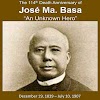Some areas within the Northern Negros Natural Park offer promising prospects on community-based ecotourism.
In Barangay Patag, Silay City, several community members are already engaged in tourism services. These community members are residing inside the NNNP, and they are also qualified to become tenured migrants in the protected area.
Community participation in ecotourism is a very good livelihood opportunity for occupants in the protected area. In fact, residents in Patag, who have started to venture on visitors’ services, are earning quite well, and they no longer engage in natural resources extractive activities. Although there are still many concerns in order to systematize and improve the ecotourism services in the area, Patag has a lot of potentials to become a major ecotourism destination in the province of Negros Occidental.
The promotion and development of ecotourism is very crucial so that non-residents of the NNNP shall be prevented from constructing vacation houses, resorts and related amenities in the protected area, like what is happening now in Salvador Benedicto and even in Patag. Communities, who are qualified as tenured migrants, should be organized and provided with necessary assistance to extend ecotourism services.
While it is true that NNNP is a protected area, it is not absolute that occupancy is not allowed. Based on the revised Implementing Rules and Regulations of the National Integrated Protected Areas System Act, or Republic Act 7586, the household head shall be considered a tenured migrant if proven to have actually and continuously occupied a portion of the protected area five years before its designation under the NIPAS, and solely dependent therein for subsistence. Tenured migrants shall be organized to avail of the Protected Area Community Based Resource Management Agreement from the Department of Environment and Natural Resources.
Salvador Benedicto could also be an ideal site for community-based ecotourism, because it has a lot of scenic sites and pristine natural environment. There are also residents of Salvador Benedicto, who are actually occupying portions of the NNNP. Instead of promoting the area for tourism development by non-residents, how about providing support and assistance to tenured migrants to become ecotourism service providers?
By encouraging and supporting communities to develop their areas for ecotourism, they may tend to avoid selling their land claims in the area to outsiders. Once capacitated and provided with support system, communities would be encouraged to protect the natural environment of the NNNP.
It should be understood, however, that when we talk about ecotourism, we are referring to development that does not involve destructive activities and should be sensitive to the fragility of ecosystems.
In the event that infrastructures shall be constructed, they must be located in hazard-free sites, done without cutting of natural growing trees and with provision of soil and water conservation measures. Structures should not impair visual corridors and must blend with the natural environment, instead of becoming eyesores.
It is also necessary to include conservation awareness and education in ecotourism development. Nature-based activities, such as guided bird watching, walking, trekking and camping, should be promoted, too.
The other potential site for ecotourism development in NNNP is Gawahon in Victorias City. The city government has already constructed some facilities, but they require improvement and maintenance. There are communities that can be tapped for ecotourism development in the area. Some community members in this part of NNNP are also engaged in wild honeybee collections. Although there are still legal issues on this kind of livelihood, it seems the collectors are engaged in sustainable harvesting, since they have been doing the collection for quite a time already.*









0 Comments